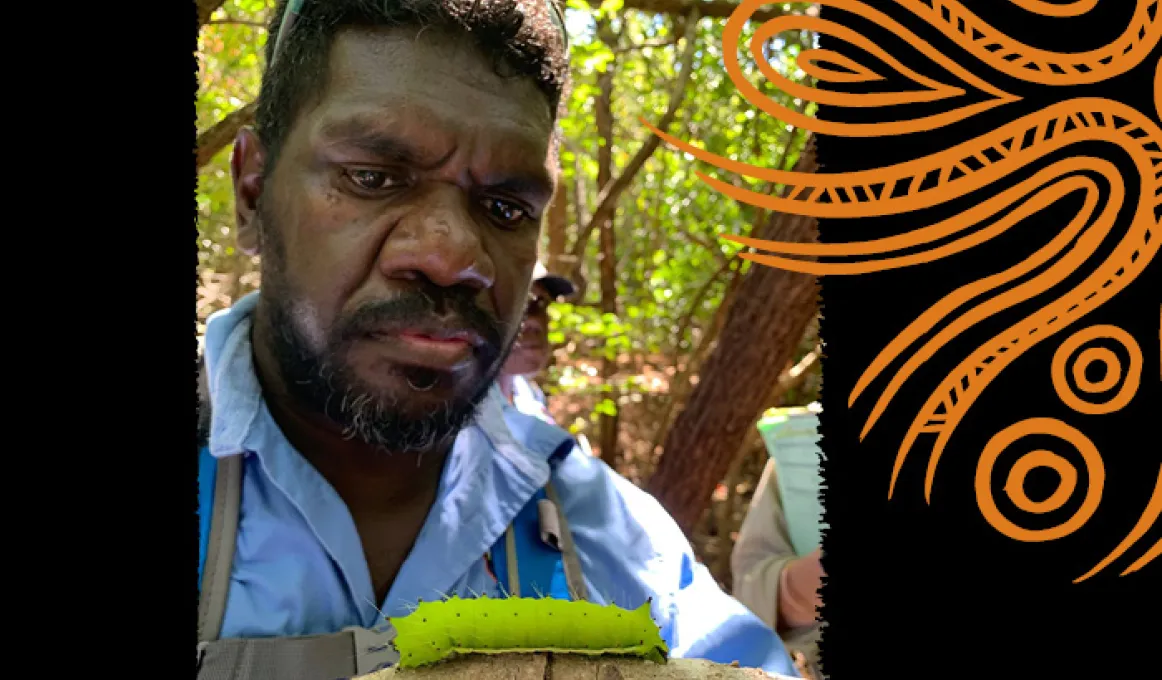World Ranger Day – Blitzing the Bush on Groote Eylandt

The Anindilyakwa Land and Sea Rangers have united with the Bush Blitz team to document the plants and animals of Groote Eylandt.
Bush Blitz is Australia’s largest nature discovery program. Using scientists from across Australia, it organises expeditions to document plants and animals and search for previously unknown species.
Over 11 days in June 2021, the Bush Blitz team worked with the Anindilyakwa Land and Sea Rangers as they surveyed plant and animal groups on Groote Eylandt in the Gulf of Carpentaria.
Katie Oxenham is the Anindilyakwa Indigenous Protected Area (IPA) Coordinator and Ecologist.
‘The Anindilyakwa IPA was chosen for a Bush Blitz expedition as there had been limited survey effort for many species groups here previously,’ Katie said.
‘This meant there was a high likelihood of documenting many species that occur here for the first time, and for the discovery of entirely new species.’
Surveys were undertaken at remote sites accessed by helicopter, as well as at sites accessible by road.
‘Rangers shared their traditional knowledge with the scientists, and at the same time learnt a wide range of new survey techniques,’ Katie said.
‘These included netting for butterflies and dragonflies, deployment of various types of fish traps, hand searching for frogs, reptiles and snails, live trapping and camera trapping for mammals, and various vegetation survey techniques.’
‘The rangers are keen to continue some of these types of surveys and are particularly interested in investing in a set of butterfly nets after showing great proficiency in their use!’
Many species of plants, molluscs, insects, and geckos were documented here for the first time during Bush Blitz. Numerous uncommon birds, reptiles and microbats were recorded at locations within the IPA in which they had never been previously documented.
‘Moreover, some species of frogs, geckos and freshwater fish previously known to occur here may in fact be genetically distinct from similar species found on the mainland,’ Katie said.
The data is currently being processed and a full report of all documented species will be produced by the end of the year.
Bush Blitz turned the ranger base into a hive of activity, with over 25 people camping at the base and fully utilising all of the available facilities.
‘It was exciting and interesting for the rangers to have so many new faces around, to be able to collaborate with scientists on new activities in the field, and to see their work cataloguing species in the lab,’ Katie said.
‘They also enjoyed the fully catered breakfast and lunches that were provided each day, and a thank you dinner held by the Bush Blitz team towards the end of the event.’
Bush Blitz also provided an opportunity for senior traditional owners and their families to visit remote parts of their country by helicopter and share their knowledge with the scientists.
Earthwatch Australia coordinated participation of 6 teachers, including Learning on Country Coordinators, and two community events during Bush Blitz, in Angurugu and Umbakumba respectively. Both events were attended by around 100 school children and other community members, with lots of interest shown in various displays and activities that were coordinated by the scientists and rangers.
Filming by a crew from Wild Pacific was also undertaken during Bush Blitz. A number of the rangers were filmed undertaking surveys and talking about the cultural importance of mangrove fauna and other resources, and will likely feature in a documentary to be aired next year.
Find out more
Bush Blitz is a unique multi-million dollar partnership between the Australian Government through Parks Australia and the Australian Biological Resources Study, BHP and Earthwatch Australia.
More than 1,700 new species have been documented by scientists working in collaboration with Indigenous rangers, landowners, teachers, students and volunteers in over 40 Bush Blitz expeditions since the program began in 2010.
For more information see Bush Blitz.
The NIAA supports the Anindilyakwa Land and Sea Rangers through the IPA and Indigenous Rangers Programs to manage their land and sea country, protecting it from invasive species and maintaining its natural and cultural heritage.